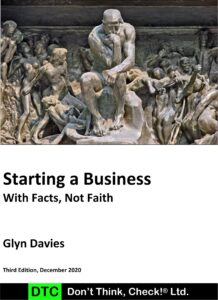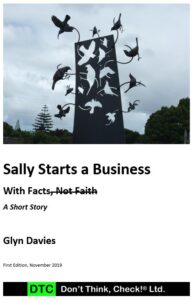I can’t recall how I discovered TED.com, but it was probably due to both an abundance of spare time and a lack of focus which afforded me the luxury to follow seemingly random links.
From TED.com:
“TED is a nonprofit devoted to Ideas Worth Spreading. It started out (in 1984) as a conference bringing together people from three worlds: Technology, Entertainment, Design. Since then its scope has become ever broader. Along with two annual conferences — the TED Conference in Long Beach and Palm Springs each spring, and the TEDGlobal conference in Edinburgh UK each summer — TED includes the award-winning TEDTalks video site, the Open Translation Project and TED Conversations, the inspiring TED Fellows and TEDx programs, and the annual TED Prize.”
For an organisation that has been around for 28 years, I’m surprised that I only learned of its existence about a year ago. But having discovered this treasure-trove of ideas, I now visit frequently, often several times per day.
The value of the TED videos for me is the diversity of topics and ideas – far better in my view than usual parade of television programming. I’ve watched dozens of TED videos now, and rarely do I abandon the presentations prematurely. Even if the topics, such as Jazz, are not my usual core interests, I find each presentation has a teachable point of view (TPOV) and I value the diversity presented.
Take for example the presentation by Stefon Harris on Jazz titled There are no mistakes on the bandstand. My takeout from the presentation was that a Jazz band can be seen as a metaphor to represent organisations in general, i.e., a group of people who together are working towards a common objective (one hopes). With a Jazz band, as in other organisations of people, an odd note (or occurrence) is not in and of itself a mistake; Stefon’s view is that “[t]he only mistake lies in that I’m not able to perceive what it is that someone else did.” The mistake is to not notice, to ignore, to not explore, to not build on the idea. Whether an idea in an organisation is worth investigating, following, or building on is not so much the point. What is the point is that we should acknowledge the contribution, see if we can build on it, and see where it takes us. Even seemingly inappropriate contributions should be looked into, i.e., what would cause someone to make such as suggestion or take such a position? What is going on that I/we should know about?
Another example video is Jack Horner and his presentation called Shape-shifting dinosaurs. It turns out that museums had and probably still do have an obsession for collecting the biggest of everything, especially dinosaur fossils – they draw the crowds. But with the focus on large dinosaur fossils, few people seemed to notice that juvenile dinosaur fossils were quite rare. However, as Jack points out, if one is not averse to taking a saw to one’s precious fossils and examines them closely, it becomes apparent that the uniquely named smaller fossils are actually juveniles of the large ones already in collections. Not only was this presentation fascinating in its own right as a detective story, it also had the not so subtle lesson about human greed, arrogance, ignorance, and not investigating or checking things thoroughly.
And how about Sheena Iyengar’s presentation on How to make choosing easier. Sheena is a professor at the Columbia Business School, has a B.S. in Economics, a B.A. in Psychology, and a Ph.D. in Social Psychology and has been blind since the 11th. grade. But wait there’s more, she has also written a book called The Art of Choosing, which I bought, read, loved, and will summarise in the near future. By the way, if you want to explore Sheena’s work some more, there are links to some of her papers on Wikipedia.
Or how about Peter van Uhm’s (the Netherlands’ chief of defence) presentation on Why I chose a gun?
Or if you want to find out why you do the things you do and why we’re all irrational, then see behavioural economist Dan Ariely’s various presentations, such as this one Are we in control of our own decisions?.
TED.com has many more presentations, over 900 of them, and quite likely something to interest most people. As mentioned, I value the diversity presented as well as being taken out of my comfort zone of entrenched and perhaps poorly supported views.
So if you’re after a presentation by your favourite author or personality, or after inspiration or thought-provoking diverse topics, pay TED.com a visit, you never know what you may find and learn. But be warned, your views may be challenged in the process!



